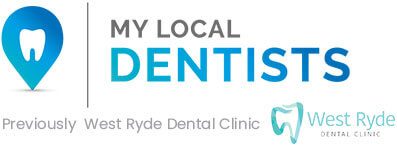The Link Between Diabetes And Periodontal Disease: Why Your Dental Health Matters

Diabetes affects millions worldwide, influencing various aspects of health—including your oral health. The severe yet commonly dismissed consequence of diabetes includes periodontal disease, which causes patients to lose teeth as well as results in gum disease and possibly low blood sugar control.
If you have diabetes, understanding the relationship between your condition and oral health is essential. Participating actively in gum protection will substantially improve diabetic health and general wellness.
The Connection Between Diabetes and Gum Disease
People with diabetes are more susceptible to infections, including those affecting the gums. Research indicates diabetes causes patients to face greater chances of getting periodontal disease when compared to people who do not have the condition.
The condition affects individuals with uncontrolled blood sugar levels most strongly.
Severe gum disease harms oral health and can make diabetes harder to manage. Intensive inflammation from gum disease triggers elevated blood sugar levels and substantially enhances the risk of developing diabetes-associated complications, including heart disease and kidney problems, alongside nerve damage.
At My Local Dentists, we emphasise the importance of dental care for people with diabetes. Regular dental visits and hygienic practices help prevent gum illnesses while improving diabetes management.
What Is Periodontal Disease?
Gum is the sixth most prevalent disease globally, under two names: gingivitis and periodontal disease. The infection of tissues around and beneath your teeth is classified as a condition known as gum disease.
Gum disease is a leading factor that drives adults to lose their teeth. It maintains its other name, periodontal disease because plaque-made bacteria drive this condition. For people with diabetes, it is a more serious problem.
Having uncontrolled blood sugar levels for an extended period makes diabetes patients more susceptible to gum disease.
Why Is Gum Disease Risk Increased by Diabetes?
Diabetes can contribute to gum disease in several ways:
- Weakened immune response: High blood sugar weakens the body’s ability to fight infections, making it harder to combat bacteria in the mouth.
- Reduced blood flow: Diabetes damages blood vessels, reducing the supply of oxygen and nutrients to gum tissues and slowing down the healing process.
- Increased sugar levels in saliva: High glucose levels let bacteria multiply and raise the chances of developing cavities and gum infections.
- Inflammation and delayed healing: Chronic inflammation caused by diabetes makes it harder for the gums to recover from infections and injuries.
Signs and Symptoms Of Gum Disease
Gum disease often progresses silently, but there are warning signs you should watch out for:
- Bleeding in the mouth when cleaning or eating
- Swollen and red gums
- Persistent bad breath
- Shrinking (receding) gums
- Gaps appear between the teeth, and the teeth move apart.
- Loose teeth
- Presence of pus around the gumline (abscesses)
You need to consult your West Ryde dentist immediately if you have any of the following symptoms. Timely recognition and necessary treatment can prevent additional issues from developing.
How Gum Disease Affects Blood Sugar Control
Gum disease doesn’t just impact your mouth—it can also make diabetes harder to manage. The inflammation from periodontal disease increases insulin resistance, making it more challenging to stabilise blood sugar levels.
When untreated gum disease persists, it can lead to longer periods of high blood sugar, putting individuals with diabetes at greater risk for complications. This creates a vicious cycle where diabetes worsens gum disease, and gum disease, in turn, worsens diabetes.

What Can Your Dentist Do to Help?
People who have diabetes need to visit the dentist regularly. At our dental clinic, we take a proactive approach to managing your oral health.
Our team can help with:
- Comprehensive gum assessments to detect early signs of gum disease
- Professional cleanings should be used to clean away dental plaque and hardened tartar from teeth.
- Treatment for gum infections to prevent complications
- Customised dental care regimens based on your unique requirements
Other Oral Health Issues Linked to Diabetes
In addition to gum disease, diabetes increases the risk of other oral health conditions, including:
- Dry mouth (xerostomia): Reduced saliva flow can lead to cavities, mouth sores, and infections.
- Oral thrush (candida infection): A fungal infection that thrives in high-sugar environments.
- Delayed healing: Minor wounds and surgical sites (after extractions or dental implants) take longer to heal in people with diabetes.
- Taste impairment: Some people with diabetes experience changes in taste perception, affecting their ability to enjoy food.
If you have diabetes or any of these symptoms, it is essential that you talk to your doctor and us as well!
Preventing Gum Disease When You Have Diabetes
The good news is that you can take steps to protect your gums and overall health:
- Control your blood sugar levels: Keeping diabetes in check is the most effective way to prevent complications, including gum disease.
- Maintain a solid oral hygiene routine: Daily toothbrushing twice per day in combination with daily flossing and antibacterial mouthwash helps lower plaque accumulation.
- Visit your dentist regularly: Schedule check-ups and professional cleanings at least every six months—or more often if your dentist recommends.
- Quit smoking: Using tobacco raises your chances of developing gum disease and slows down the healing processes in your body.
- Eat a balanced diet: Proper nutrition supports mouth and general body health.
Periodontal Disease Treatment in West Ryde
At My Local Dentists, we provide you with personalised service. All our dentists are highly motivated and accredited practitioners with graduate degrees from the University of Sydney.
Along with the dentists, the supporting staff are highly dedicated and experienced in ensuring each visit with us is as comfortable as possible.
Call your West Ryde dentist on (02) 9809 7000 or book your appointment online TODAY!
Visit us at Shop 20 West Ryde Marketplace, 14 Anthony Road in West Ryde.
